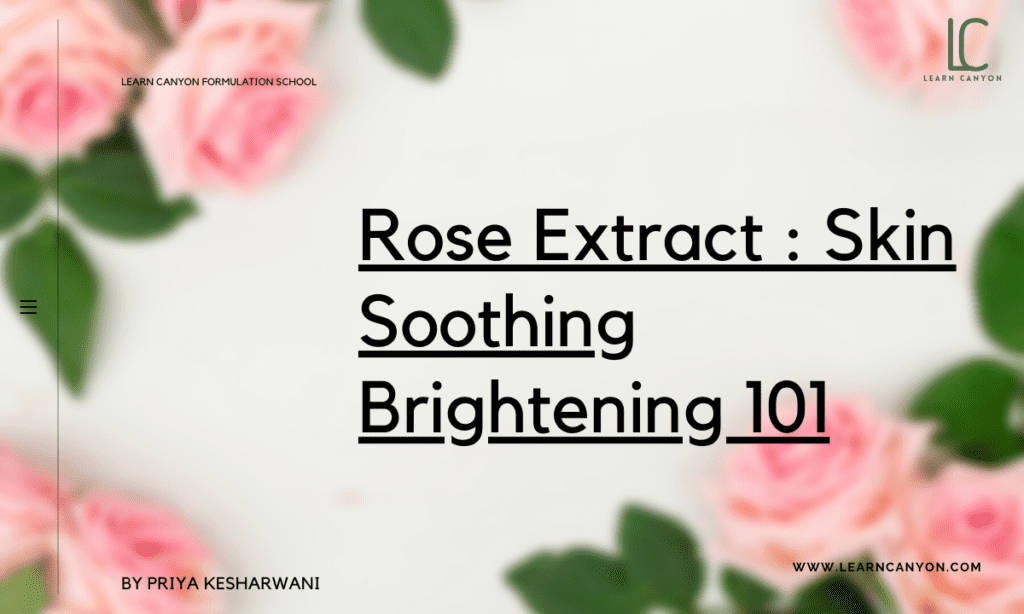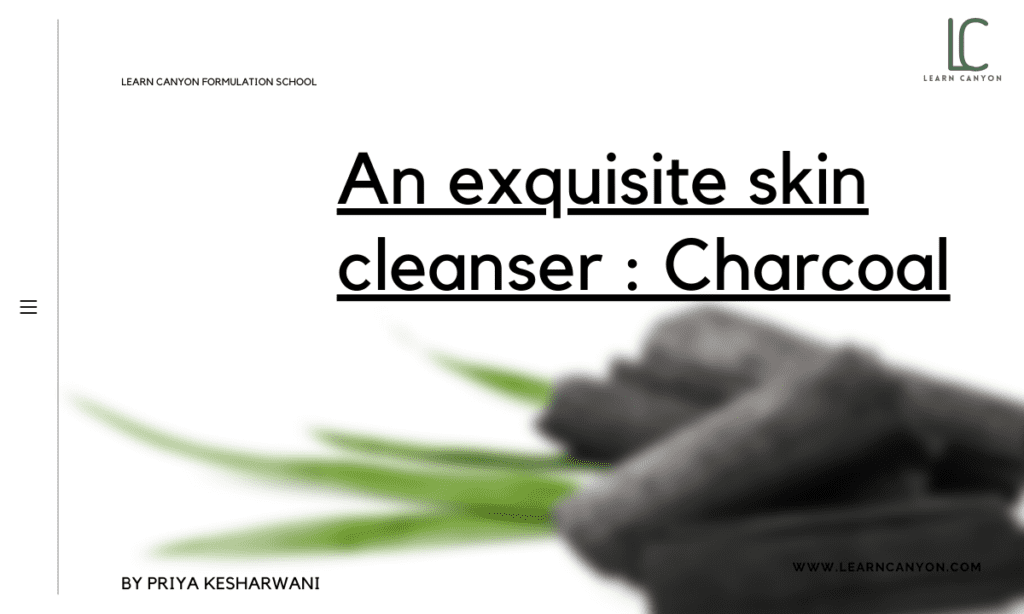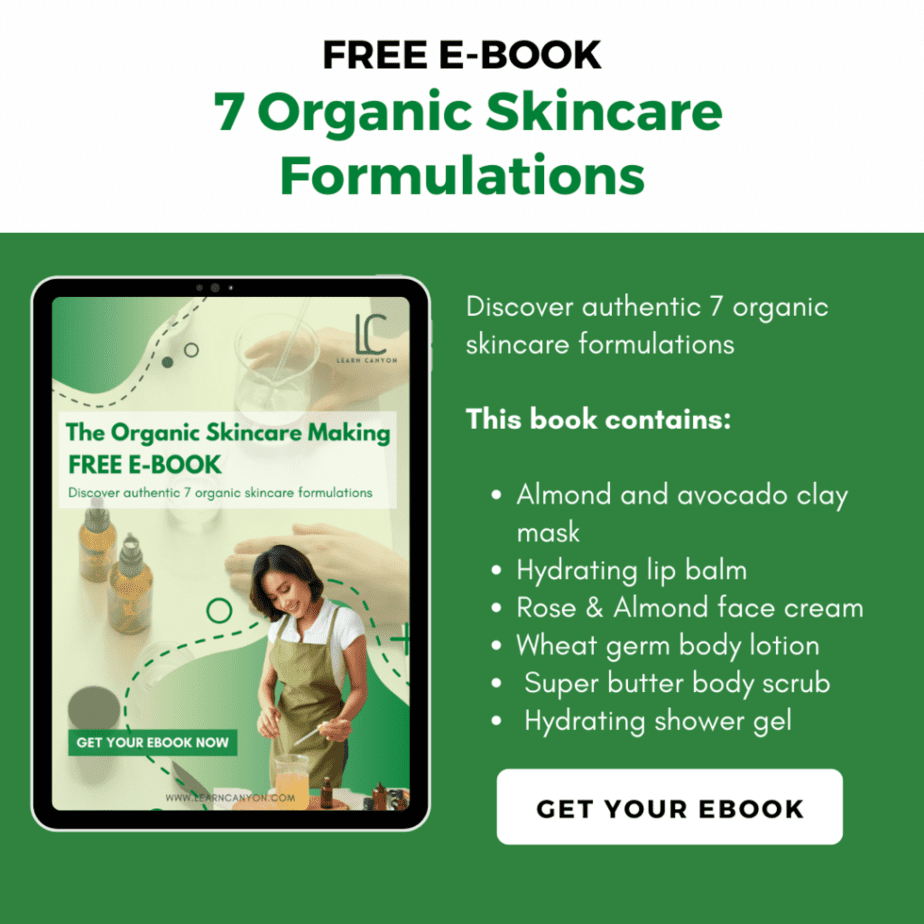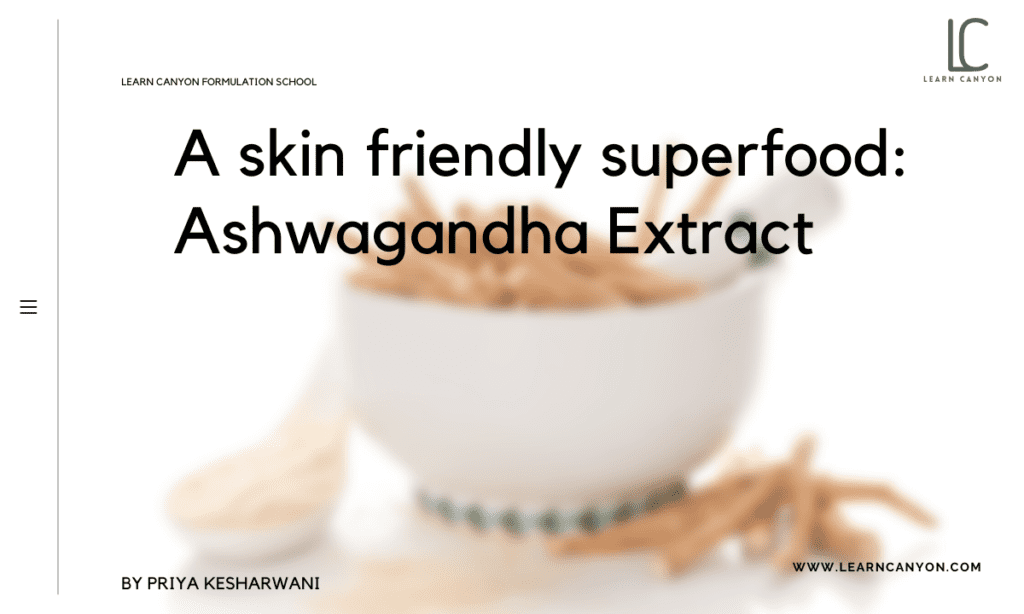
Allantoin : A calming skin-care ingredient to include in your formulas.
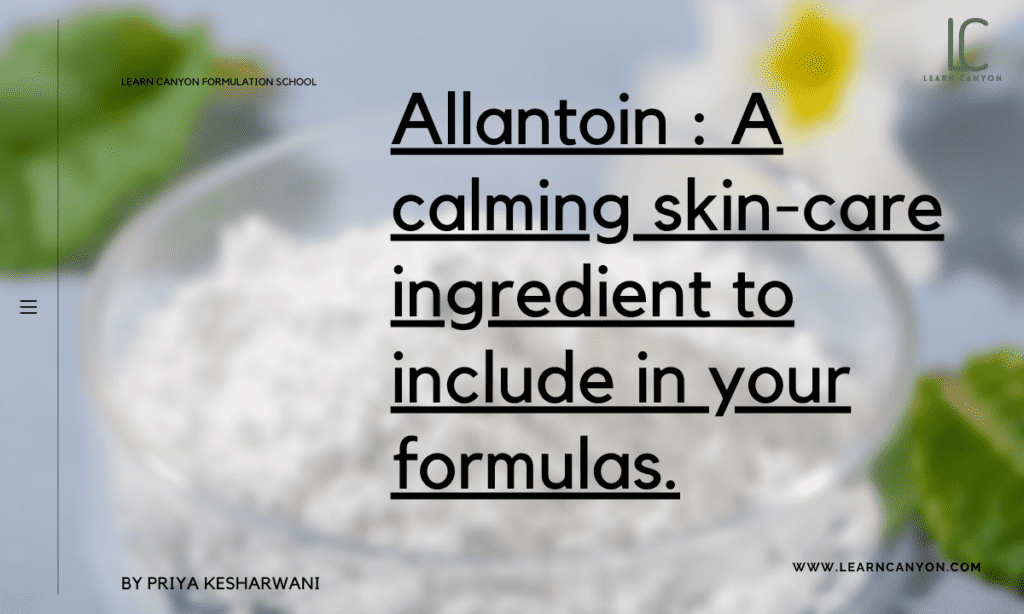
Allantoin
Meet the miracle ingredient that hydrates, fights ageing, and so much more. When a substance is backed by studies that declare it to be a life solution, you know you’ve got something fantastic on your hands.
Allantoin is a multi-purpose skin-soothing and skin-protecting chemical. Allantoin is non-irritating and safe for the skin, as well as for cosmetic raw ingredients.
But what is allantoin, exactly? Continue reading to learn about the wonderful skin advantages of this crucial chemical, as well as products that include it to help you cope with the impacts.
What is Allantoin?
Allantoin is a well-kept “secret” in the skincare world, although moisturising ingredients like hyaluronic acid and aloe vera are well-known.
Despite the fact that lab-created allantoin (found in plants like as comfrey) is rarely mentioned in skincare product reviews, both lab-created and naturally-occurring allantoin (found in plants such as comfrey) give diverse benefits, flexibility, and natural affinity for the skin.
Allantoin is a powder that can be found in a variety of creams and liquids, including moisturisers, exfoliants, and masks. Only active components are found in some cosmetics.
| What is it? | Allantoin is a naturally occurring molecule that is relaxing, anti-irritating, and a skin protectant that has been approved by the FDA. |
|---|---|
| INCI | Allantoin |
| Appearance | Fine white crystalline powder |
| Texture | Fine |
| Recommended Usage | 0.5–2% |
| Solubility | Water soluble |
| Melting point | 230 °C (446 °F; 503K) |
| Boiling point | 478 °C (892 °F; 751 K) |
| pH | 4.0-6.0 |
| Aroma | Odourless |
| Why do we include it in formulations? | By promoting skin cell turnover, it aids in the healing process. It's hydrating, relaxing, anti-irritating, and promotes the growth of healthy tissue. |
| How to work with it? | Blend it thoroughly in the cool-down phase (below 50°C). |
| Applications | There are several uses for allantoin. Assist in the reduction of the appearance of skin damage and ageing. Allantoin Powder is an excellent anti-irritant that protects the skin in addition to its moisturising characteristics. |
| Absorption rate | Fast |
| Strength | At low concentrations, this substance is an effective skin protectant and promoter of overall excellent skin health. |
| Weaknesses | It can crystallise into uncomfortable shards. |
| Substitution | Comfrey plants botanical extracts, beets, chamomile, wheat sprouts. |
| How to store it? | Stored in a cool, dark, and dry place. |
| Shelf life | Allantoin should last two years. |
Fast facts
| Type of ingredient | Moisturizer and exfoliator. |
|---|---|
| Main benefits | Moisturizes, soothes itchiness, and heals injured skin. |
| Who should use it | In general, those with dry, itchy skin look for better skin texture and smoothness, regardless of skin type, age, or conditions. |
| How often can you use it? | Can be used day in and day out without general side effects of any kind. |
| Works well with | Allantoin is frequently combined with substances like silicone and other emollients in scar treatments to improve results. |
| Doesn't work with | Combining it with other exfoliants, it says, may cause an exaggerated reaction, producing excessive irritation if the concentrations are too high. |
| How to use | Included in the water phase of your formulations |
Mechanisms of actions
It’s simple to use allantoin for your skin, but how do you work with it? Let’s have a conversation about it. Allantoin has been shown to have skin-beneficial properties. Allantoin is a moderate keratolytic agent that helps the natural desquamation of the stratum corneum and increases skin smoothness by dissolving the intercellular cement that holds the cornified cells together. The capacity to increase the quantity of water attached to the intercellular matrix and keratin results in a moisturising effect, softening the skin and making it appear healthier.
The Benefits of Allantoin
So now we know what allantoin is and how it benefits our skin. A few advantages you should be aware of are listed below.
Moisturizes: Allantoin is an emollient that moisturises and protects your skin from dryness and irritation.
Soothes skin: Allantoin also acts as a relaxing agent, which helps to soothe the skin. It calms and protects the skin, according to Herrmann, by creating complexes with irritants and sensitising agents.
Improves skin-healing: It has been observed to help calm wounded skin and aid wound healing, according to Herrmann, and is frequently used to treat skin irritation and rashes.
Exfoliates: Allantoin is also keratolytic, which means it exfoliates dead skin cells, according to Herrmann. It aids desquamation, or the loss of the outermost membrane or layer of tissue from the inside out, according to Shamban.
Hydrates: If you have dry or sensitive skin, allantoin is an excellent choice for locking in moisture because it increases the water content of skin cells, resulting in supple skin that is gentle enough to use on easily irritated skin. This keeps your skin from losing moisture through Tran’s epidermal water loss, or moisture evaporating from the skin’s surface.
Side Effects of Allantoin
Allantoin is a non-toxic substance that can be used in cosmetics. “It’s non-irritating, a gentle anti-ager in skincare, and it’s great for most skin types, including sensitive skin or persons with a range of skin conditions,” Shamban says, adding that it’s also a soothing agent. Some people may be allergic to the chemical, according to Herrmann, especially if it is consumed directly from crushed comfrey leaves, in which case it should be avoided.
How to Use it in formulations?
Allantoin powder must be dissolved in water first. To make sure it dissolves completely, add it to the water phase before heating.
Works well with other ingredients
Allantoin is frequently mixed with silicone (synthetic) and other emollients in scar treatments, according to Herrmann. Not recommended for use with: Combining it with other exfoliants, Herrmann advises, may induce an exacerbated reaction, resulting in severe discomfort.

